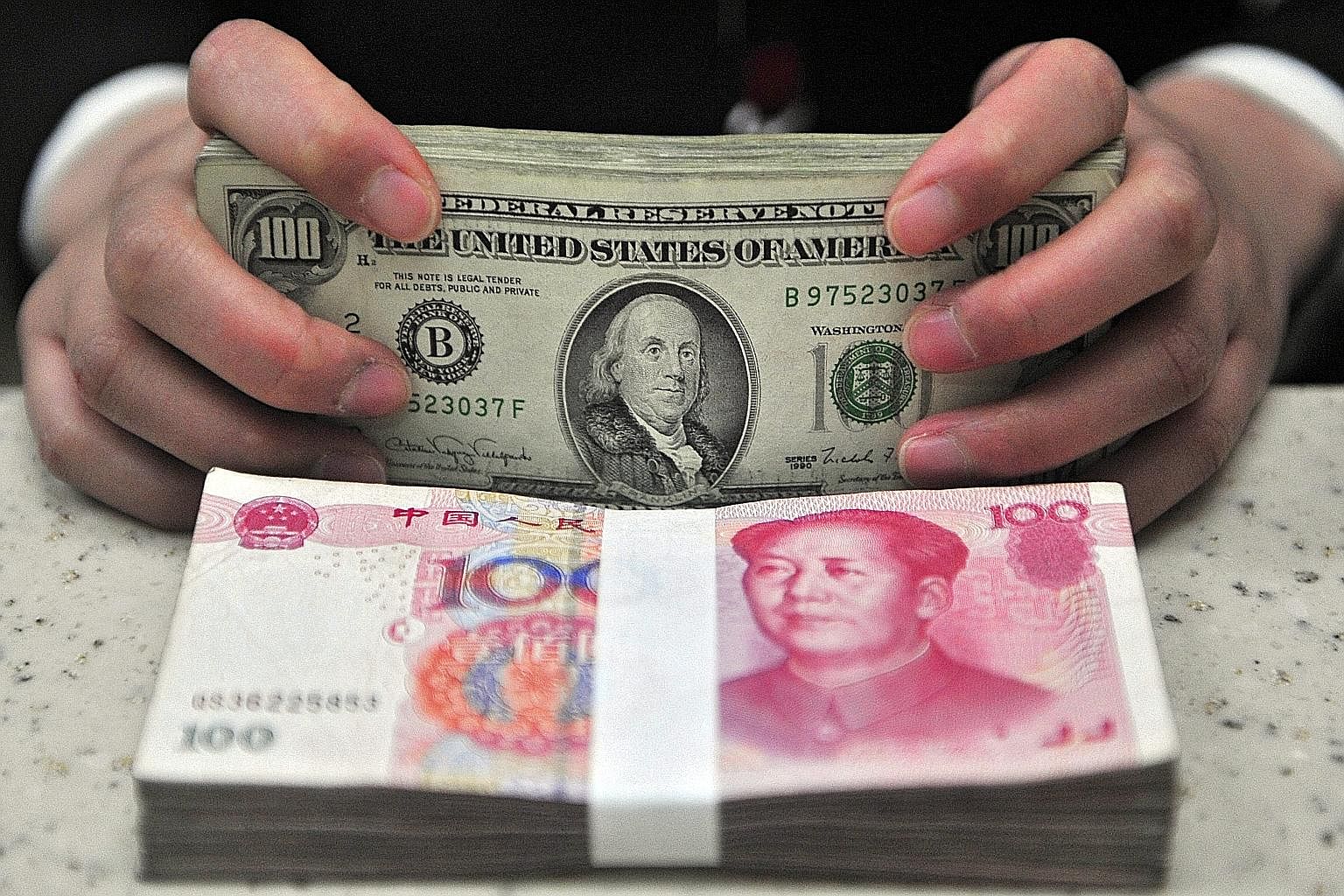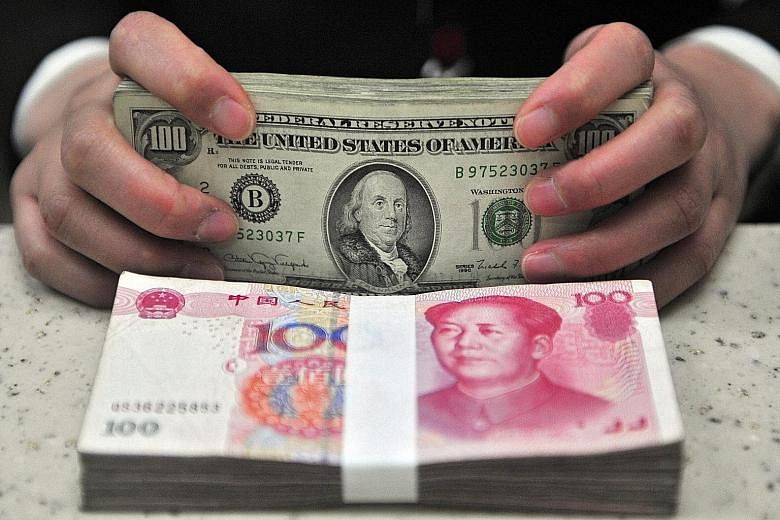The International Monetary Fund's (IMF's) decision to designate China's renminbi, commonly known as the yuan, as a global reserve currency will, over time, encourage the country's leadership to make the currency more tradeable. But the political implications of global reserve status may be more significant than the economic ones.
China is the first non-democracy in the elite reserve group that includes Britain, the European Union, Japan and the United States. President Xi Jinping will have to demonstrate that China's unique system of governance can produce the degree of stability and predictability in transition that characterises the other members of the club. And that in turn will constrain him as he considers whether, and how, to begin the process of transferring power to a successor in roughly seven years.
Start with the definition of a global reserve currency used by the IMF. Formally, the IMF measured two things: whether the yuan was "widely used to make payments for international transactions" and "widely traded in the principal exchange markets". Sceptics have noted that most of the "international" payments - for which the yuan is used - take place in Hong Kong, which isn't exactly international given China's political control of the island. But that's of secondary importance compared with the fact that the IMF's definition was officially focused on quantity and type of use, not underlying stability.
In reality, the history of global reserve currencies is highly correlated with political stability. Think about it: Would you rely on a currency to retain its value if you thought that the issuing government was likely to be toppled from outside or that it was susceptible to internal collapse?

Thus, the British pound became a de facto global reserve currency during the 19th-century era of the Pax Britannica, when the sun never set over the empire. Victory over Napoleon made Britain stable externally, and the gradual, mostly peaceful emergence of modern democracy made it stable within.
The US dollar assumed the status after American victory in World War II. Again, global hegemony was paired with internal democracy and the stability it brings.
The euro and the yen share the feature of stability, in large part because the governments of Europe and Japan are protected from foreign threats by cooperative US security arrangements, and democratic governments ensure smooth transitions within.
It's worth pausing to note that not every democracy is inherently safe from the outside or stable within. But democracies in general do a reasonably good job on both fronts.
An enfranchised public is likely to reward governments that protect them from outside threats.
And democracy, whatever its limitations, has proved itself very good at managing internal transitions stably in the era of modern Constitutions. Weak and emerging democracies can be subject to coups and civil wars. But once democratic constitutionalism is up and running, major political parties learn that they have the chance to rotate back into power, which leads them to respect electoral results and protect the rights of losers who will one day be winners in their turn.
China is a horse of a different colour. Prior to the era of its rapid economic growth, its leadership transitions were extremely rocky. Mao Zedong was in and out of power, and the events of the Cultural Revolution showed that it was highly unpredictable who would rule next, and how.
One extraordinary legacy of the post-Deng Xiaoping period has been China's new model of power transitions within the Communist Party. Every 10 years, the party's senior leaders step aside, and are replaced by a new cohort.
Along the way, there's jockeying - and the top leaders emerge well before the previous leaders' 10 years are up. There are no elections, yet the modestly opaque process within the senior ranks of the party can be glimpsed, and gamed, from outside. Merit plays a role, alongside the construction of complicated networks of personal and political association.
This regularised process has now been repeated an astonishing three times. It's not an exaggeration to say that this model represents a new form of political transition previously unknown to the world. The system remains authoritarian, but it's also internally competitive and partly meritocratic.
Above all, it's become predictable and therefore stable. Without it, it's impossible to imagine the yuan getting or keeping global reserve status.
All this matters greatly for Mr Xi as he contemplates his political future. In almost three years in office, he has concentrated a good deal more power in his own person than either of his two predecessors selected under the Chinese system.
And Mr Xi wouldn't be human if he weren't at least considering the possibility of holding onto power after his 10 years are up. By consolidating power, he's less reliant than his predecessors on extended networks of obligation. By fighting corruption, he's assumed the power to knock out opponents. Because corruption is so widespread, he can usually do so credibly.
But a change in China's succession practices would actively undermine the yuan's reserve status by undermining confidence in its political transition.
If he wants the yuan to keep its status, Mr Xi now has a major new incentive to make sure a 10-year generational successor emerges over the next three to five years - and that the successor doesn't look like someone who will be taking orders from him a la President Vladimir Putin and Prime Minister Dmitry Medvedev in Russia.
That's a good thing for China's future, and for the world. China is going through major changes, and stability depends on making sure an end to government transitions isn't one of them. The Chinese Communist Party has many drawbacks and faults. But its innovation in government transitions is one accomplishment that should be preserved, at least until democracy becomes a viable option.
BLOOMBERG VIEW

